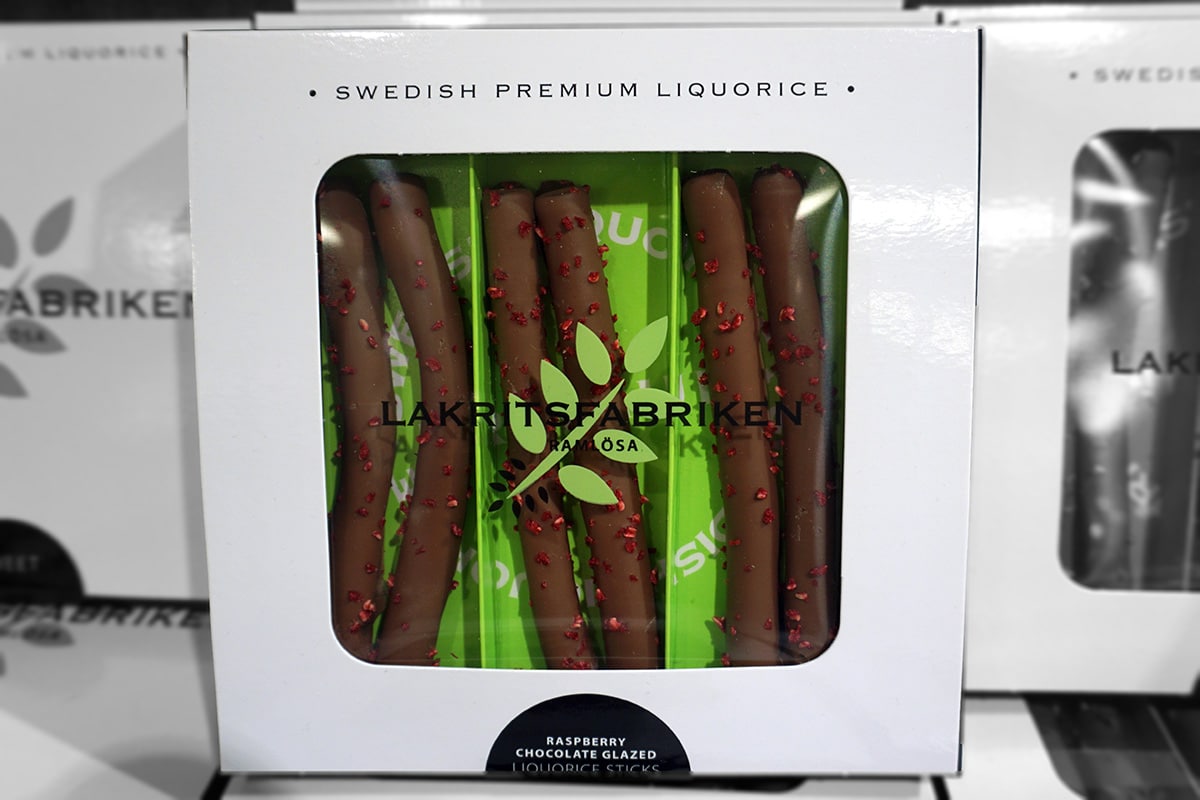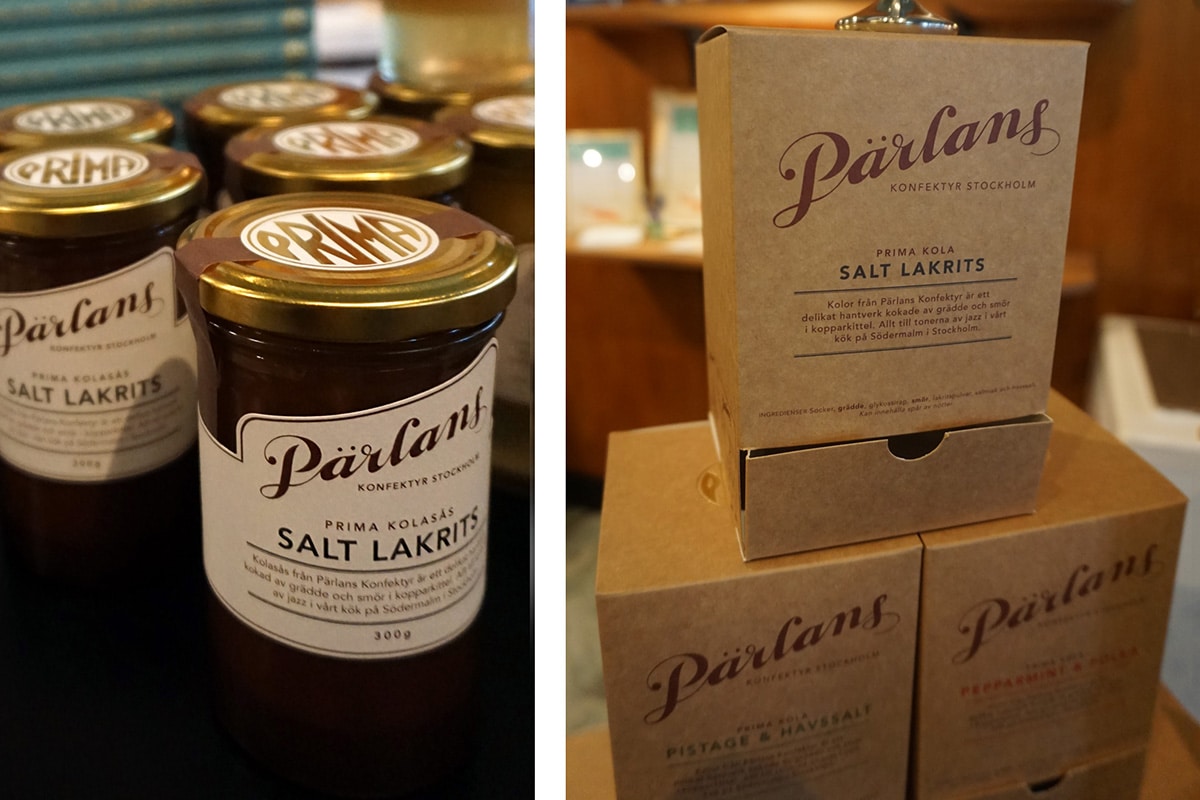One thing I noticed that is well-loved in Scandinavia and Northern Europe is licorice. In Sweden, bright-colored licorice vendors can be found on every other street corner. One variety especially loved is black licorice. Anywhere you see sweets you will find different forms of black licorice. The most unique kind is salty licorice. This salty variety is among the favorite candies of the Dutch and Scandinavians.
Brief History
Licorice is made from a root grown mostly in the middle east. Besides the majority of it being used in the tobacco industry, licorice is mostly consumed as a confectionary in Europe, especially Northern Europe and Scandinavia. One of their favorites being salty licorice. The beloved salty licorice is made from licorice and ammonium chloride. Ammonium chloride has a history of being used as cough medicine. The combination of licorice and ammonium chloride originates in the pharmacies from around the 1930s and was formed into a triangular cough drop. Leading to today’s affection of salty licorice confectionary.
How it looks
Package Design
In the US, black licorice is nearly a thing of the past. Not so in Sweden or Europe for that matter. You can find a wide range of licorice packaging throughout Europe. From high end premium licorice packaging in high end department stores to the grocery store with bright candy colored dispensers to vendors on the street corners.
Salty Diamond-shaped Licorice
The traditional salty varieties are still designed into diamond-shaped lozenges, as they were originally made by drug stores who created their own medicine. If you are a black licorice lover, then you are in luck in Northern Europe or Scandinavia. No matter where you go, whether you go to someone’s office or home, there will be a bowl of licorice awaiting.
How it tastes
In Sweden, you see licorice vendors all around Stockholm selling bright colored licorice. Every place you go, if there are candies there is licorice and most often it is black licorice. This includes the ever popular is salty licorice. For most, including myself, the salty, slightly stinging sensation is an acquired taste.
Summary
There is such a variety of different kinds of licorice in Northern Europe and Scandinavia. If you visit, you should explore your taste buds and try salty licorice. Whether you love it or not, you can try it for the experience.



Are you looking for an award-winning food packaging design agency to help you with your new product line? We’d love to help you! Contact us today.
For more resources, check out our food packaging design guide.



